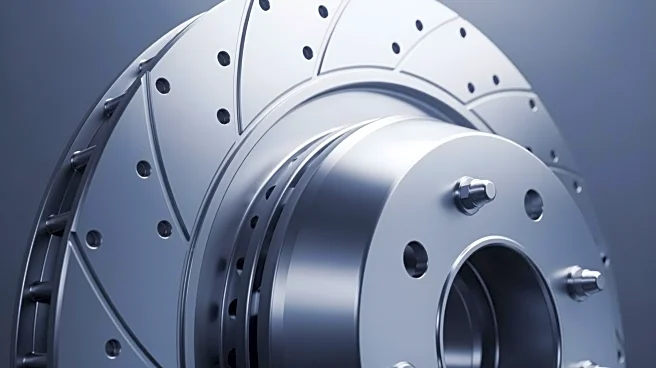What's Happening?
Automakers and suppliers are under pressure to comply with the Euro 7 emissions standard, which includes new limits on brake particulate emissions. The standard, set to take effect in November 2026, requires significant reductions in emissions from vehicle
brakes, with specific limits for different types of vehicles. AVL, a company specializing in automotive engineering, highlights the challenges faced by manufacturers in meeting these new requirements. The complexity of measuring brake particles, which differ from exhaust emissions, poses a significant hurdle. Many current brake systems may not meet the new standards, necessitating extensive testing and potential redesigns.
Why It's Important?
The Euro 7 standard represents a major shift in automotive emissions regulation, expanding the focus beyond exhaust emissions to include other sources like brakes and tires. Compliance with these new limits is crucial for automakers to continue selling their vehicles in the European market. Failure to meet the standards could result in significant financial losses and impact the industry's ability to contribute to environmental sustainability goals. The push for compliance also drives innovation in brake technology, potentially leading to advancements that could benefit the global automotive industry.
What's Next?
Automakers and suppliers must accelerate their efforts to test and redesign brake systems to meet Euro 7 standards. AVL's expertise in emissions testing and engineering solutions will be critical in helping companies navigate these challenges. As the deadline approaches, manufacturers will need to invest in new technologies and processes to ensure compliance. The industry may see increased collaboration between automakers, suppliers, and regulatory bodies to address the complexities of brake emissions testing and develop effective solutions.














